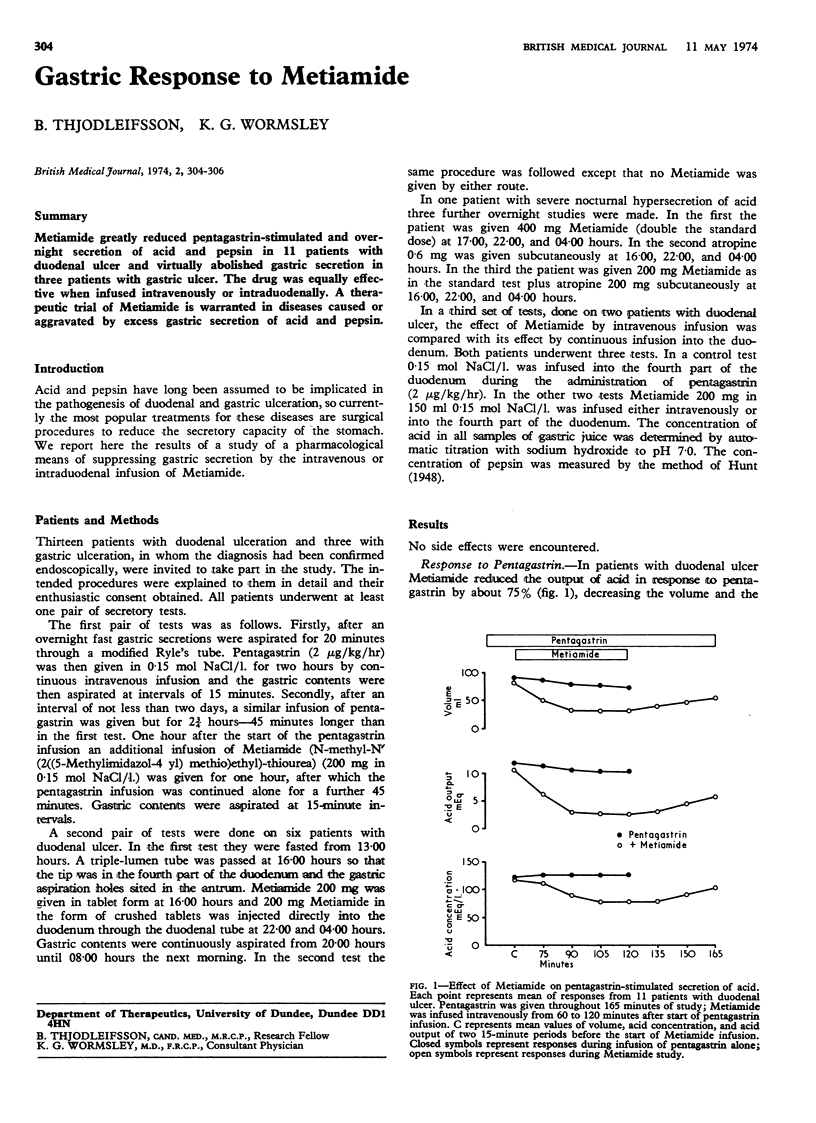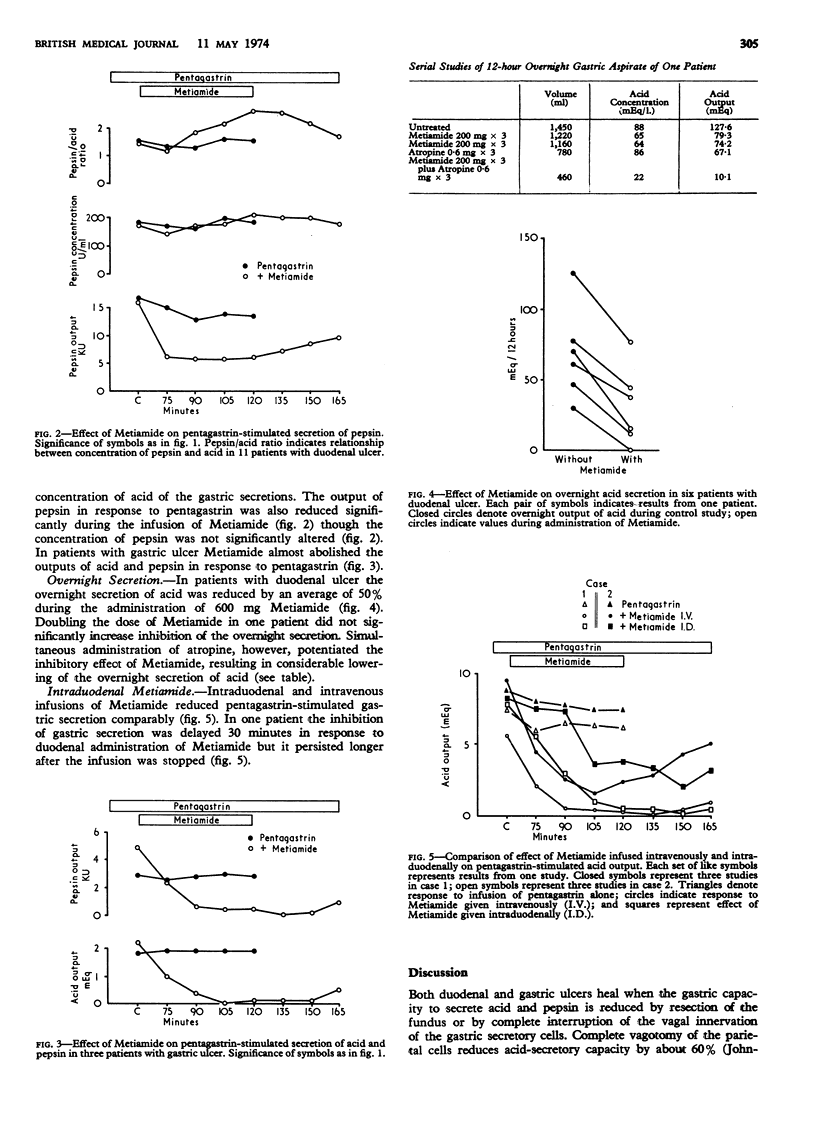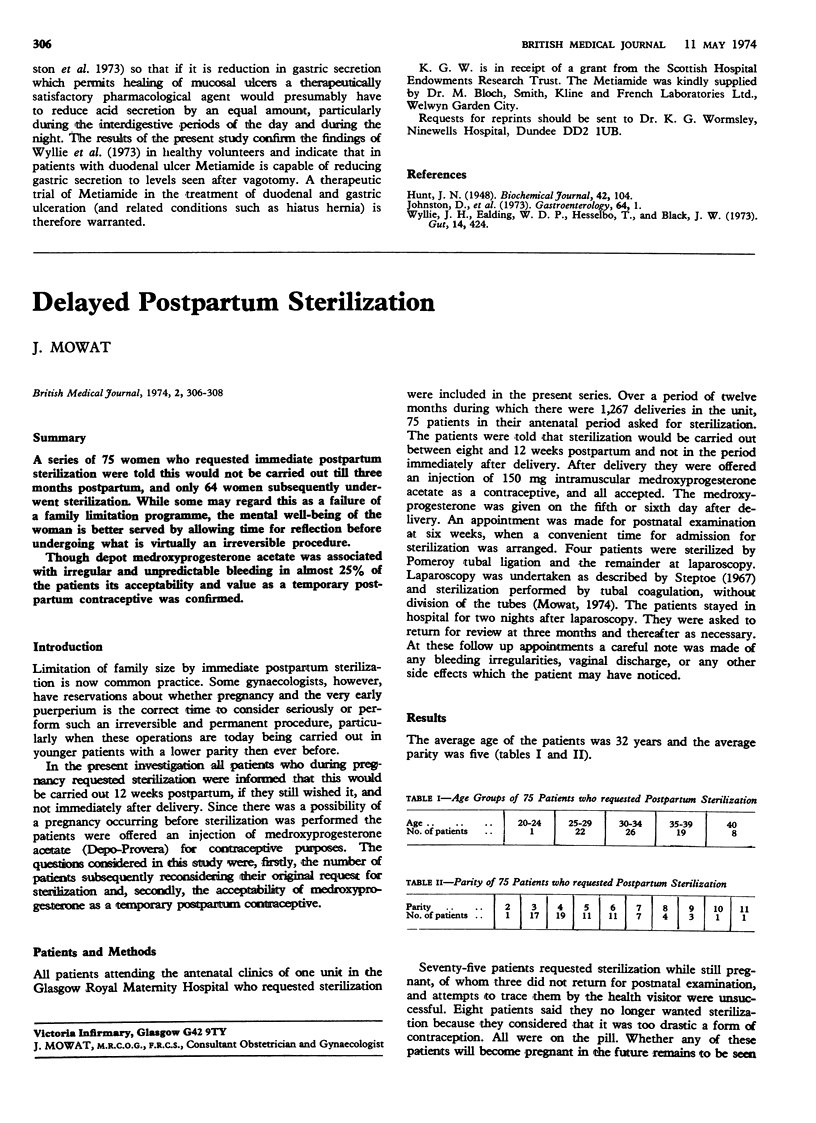Abstract
Metiamide greatly reduced pentagastrin-stimulated and overnight secretion of acid and pepsin in 11 patients with duodenal ulcer and virtually abolished gastric secretion in three patients with gastric ulcer. The drug was equally effective when infused intravenously or intraduodenally. A therapeutic trial of Metiamide is warranted in diseases caused or aggravated by excess gastric secretion of acid and pepsin.
Full text
PDF


Selected References
These references are in PubMed. This may not be the complete list of references from this article.
- Hunt J. N. A method for estimating peptic activity in gastric contents. Biochem J. 1948;42(1):104–109. doi: 10.1042/bj0420104. [DOI] [PMC free article] [PubMed] [Google Scholar]
- Johnston D., Wilkinson A. R., Humphrey C. S., Smith R. B., Goligher J. C., Kragelund E., Amdrup E. Serial studies of gastric secretion in patients after highly selective (parietal cell) vagotomy without a drainage procedure for duodenal ulcer. I. Effect of highly selective vagotomy on basal and pentagastrin-stimulated maximal acid output. Gastroenterology. 1973 Jan;64(1):1–11. [PubMed] [Google Scholar]
- Wyllie J. H., Ealding W. D., Hesselbo T., Plack J. W. Inhibition of gastric secretion in man by metiamide: a new, orally active histamine H 2 -receptor antagonist. Gut. 1973 May;14(5):424–424. [PubMed] [Google Scholar]


